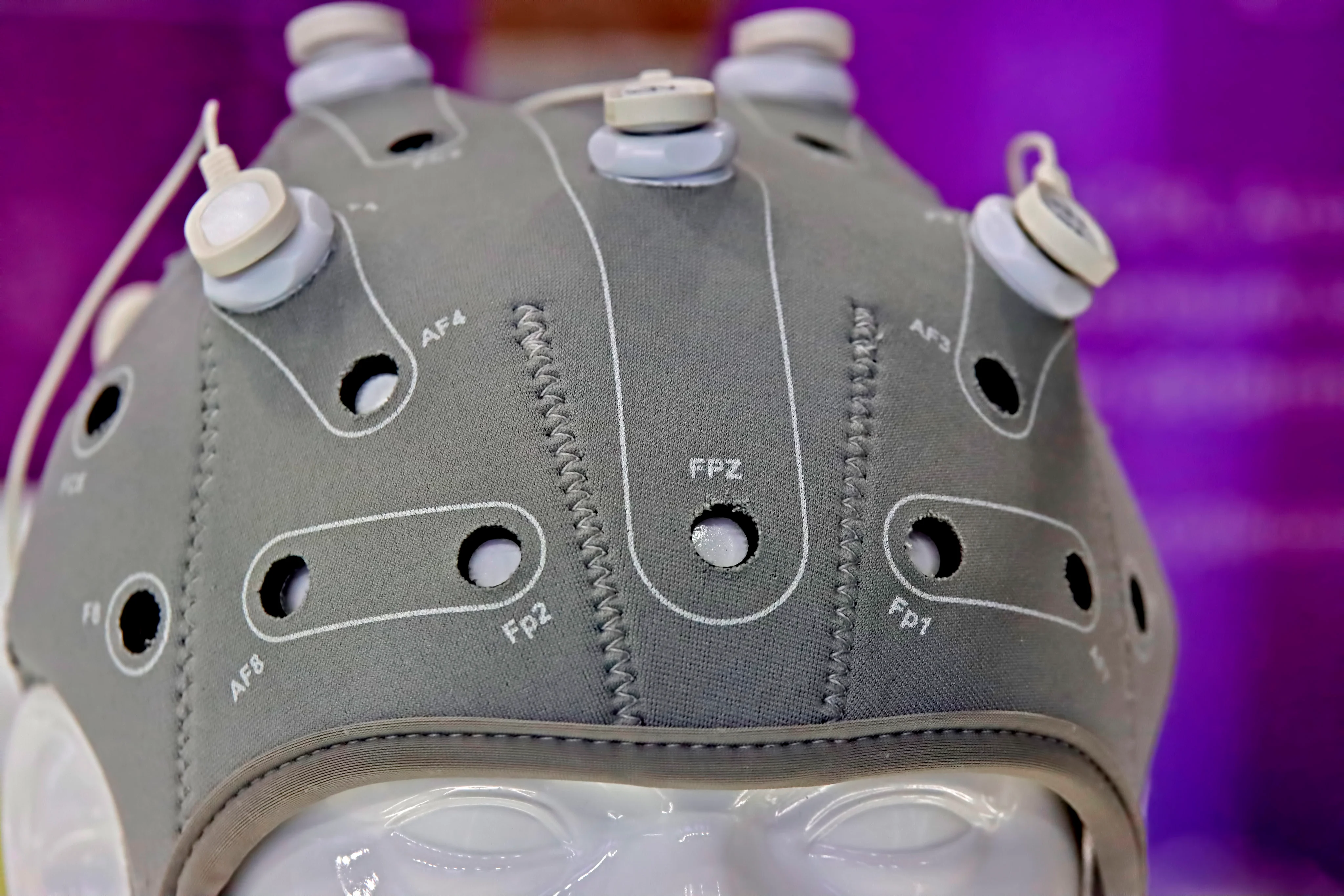By Holly Chik
China has unveiled policies to support the development of the medical use of brain-computer interfaces (BCI), technology that enables brain signals to control external devices.
The National Medical Products Administration said on Thursday that it would introduce supportive policies for medical devices based on the technology, which could allow people with missing or damaged body parts to control computers and robotic limbs using their thoughts.
The support for medical applications of brain-computer interfaces is among a range of innovation-boosting measures proposed by the agency, which regulates medications and medical devices.
“[We will] strengthen the standardisation research of new biomedical materials, including medical materials for additive manufacturing, flexible electrodes for brain-computer interfaces, and gene-engineered synthetic biomaterials,” it said.
The agency added that it would promote “research on safety and efficacy evaluation methods for medical devices based on brain-computer interface technology”.
Research is under way in healthcare and medical sciences on how the technology can be used to repair or reinstate functions for people with impairments caused by neuromuscular disorders such as stroke and spinal cord injuries.
There are also hopes that it could be an effective treatment for movement disorder cerebral palsy or the rare neurodegenerative disease amyotrophic lateral sclerosis (ALS). The technology might also help to restore damaged sight or hearing.
“Medical robots, advanced medical imaging equipment, artificial intelligence medical devices and new types of biomedical materials are key areas that shape the new quality productive forces of medical device manufacturing,” the agency said.
“[We should] promote the application of more new technologies … in the healthcare sector to better meet the health needs of our people and enhance the international competitiveness of China’s advanced medical devices.”
The agency also said that it would accelerate the development of general standards and establish standardisation technical organisations for medical robots and AI-powered devices. Approval procedures for equipment with high clinical application value will also be streamlined.
“[We will] continue to implement special innovative reviews for high-end medical devices that are the first of their kind in China, top in the world and have significant clinical application value,” the agency said.
“[We will also] strengthen communication between applicants and review experts, and enhance technical guidance for the research, development and registration of innovative medical devices.”
Research on BCI technology began in the 1970s when scientists showed that brain signals could be recorded and translated into commands, allowing users to control machines with their thoughts.
While early research focused on helping people with disabilities, today’s BCIs have expanded into a wide range of applications, from wearable devices for gaming to hands-free drone control.
In February, Tianjin and Tsinghua University researchers said they had developed the world’s first two-way adaptive brain-computer interface, allowing the brain and device to learn from each other.
The team said the system could eventually be integrated into portable and wearable BCI devices, making it suitable for consumer and medical applications.
